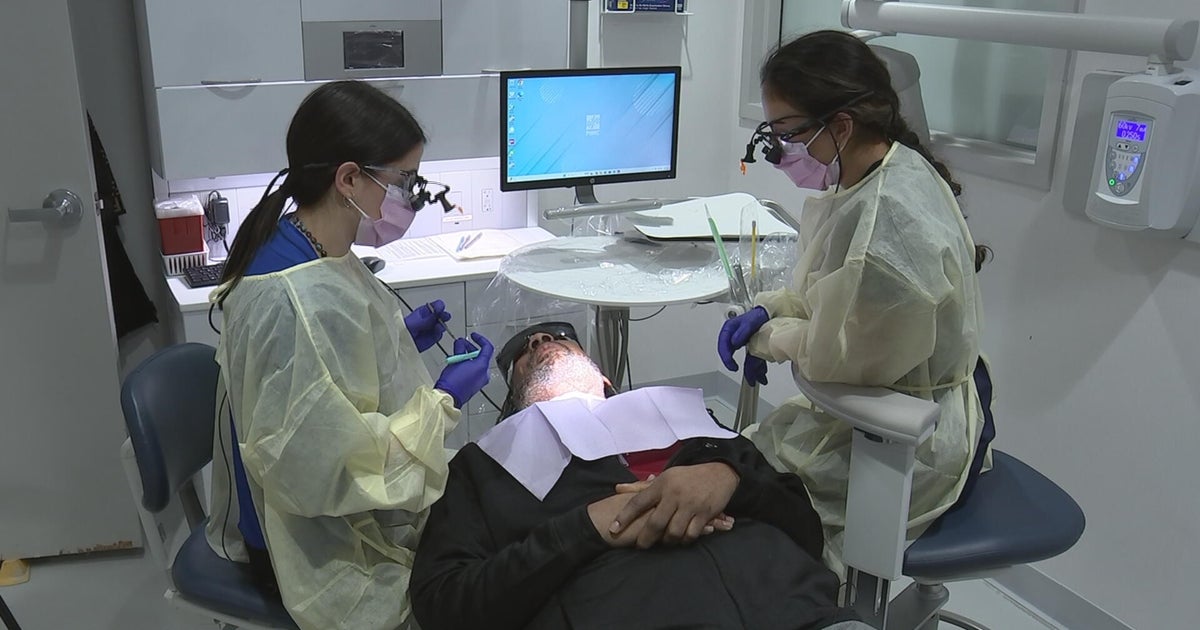Abortion in Ohio will continue, despite Attorney General order to stop
Clinics that provide abortion services in Ohio will continue to provide the procedure, despite an order from the state's Attorney General's office ordering them to stop. In Ohio — a state that has been on the forefront of abortion restrictions and regulations — a debate has emerged over whether the procedure is "essential" and allowed to continue during a government clampdown on medical services because of the COVID-19 outbreak.
On Wednesday, the Ohio Department of Health ordered all "non-essential and elective surgeries" be temporarily suspended to preserve protective gear for health care workers. Though the directive made no mention of abortion services, by Friday, the state's Attorney General's office had sent letters to two of Ohio's six clinics that provide surgical abortions, ordering them to "immediately stop performing non-essential and elective surgical abortions."
On Saturday, a spokesperson for the Attorney General's office clarified to CBS News that all of the state's abortion providers needed to stop offering the procedure.
But at least five of the state's six surgical providers say abortion is essential and time sensitive. Because of that, they say there won't be any interruption of services.
"Planned Parenthood's top priority is ensuring that every person can continue accessing essential health care, including abortion. We know your health care can't wait," said Iris E. Harvey and Kersha Deibel, the respective heads of Planned Parenthood of Greater Ohio and Planned Parenthood Southwest Ohio Region, in a statement provided to CBS News. "Abortion is an essential, time-sensitive medical procedure."
Planned Parenthood operates three of Ohio's surgical abortion providers: Planned Parenthood Bedford Health Center, Planned Parenthood Southwest Ohio in Cincinnati and Planned Parenthood East Health in Columbus.
A lawyer for Planned Parenthood Southwest Ohio Region responded to the letter from the Attorney General's office, saying the clinic was in compliance with the Health Department's order. Harvey and Deibel said this allows Planned Parenthood to "still continue providing essential procedures, including surgical abortion."
On its website, Preterm of Cleveland said it also would continue providing abortion services despite the Attorney General's letter. However, the clinic said it would be reducing the number of daily appointments and "instituting even more stringent precautionary measures to keep our patients, staff, and their families safe and healthy."
"In the midst of the COVID-19 Coronavirus pandemic, we know that our most vulnerable patients will have even more challenges getting the services they need, and community care will be key to preventing a reproductive healthcare crisis down the line," the healthcare clinic wrote on its website.
The Women's Med Center of Dayton also has said it would continue to provide abortion services, according to local news reports. As of Sunday afternoon, it was unclear whether Northeast Ohio Women's Center of Akron would continue as well.
The Attorney General's office said it would pursue legal action against the clinics if the Health Department determines the facilities are in violation of the order restricting "non-essential" surgeries.
"This is not about abortions," said Bethany McCorkle, a spokesperson for the Attorney General, in an email to CBS News on Sunday evening. "This is about nonessential surgeries using PPE during this pandemic."
An email to the Ohio Department of Health was not immediately returned.
Whether abortion is classified as "essential" will become a sticking point as states across the country move to suspend "non-essential" procedures to conserve protective equipment for medical professionals.
In Massachusetts and Washington, officials have said that these orders don't apply to abortion services, echoing guidance from leading reproductive health organizations that classify the procedure as an "essential component of comprehensive health care."
However, it's unclear how more conservative states will handle the issue. On Sunday evening, Texas Governor Greg Abbott temporarily suspended "non-essential" surgeries, not commenting on whether the state's abortion providers would be exempt.



